PEWL Year in Review
July 2021-July 2022
Office of Professional Education and Workplace Learning



July 2021-July 2022
Amy Perez
Executive Director, Professional Education and Workplace Learning
Jorge Silva-Puras Interim Dean
Tracy Meade
Senior Associate Dean for Strategy and Innovation
Jennifer Chand Director of Monitoring, Evaluation, and Learning
Marisa Osorio Writer/Editor
Alan Rubenstein & Ariana Souzis Copy Editors
Dorothy Robinson Graphic Designer

Kelly Cunningham
Senior Graphic Designer
In 2006, PEWL was created alongside CUNY SPS with the deepest conviction that a great urban university should also attend to the needs of the city.
With that mission at the forefront, PEWL grew from a team of three to what we have today — more than 200 learning and development professionals who partner with city and state agencies, nonprofit organizations, and the private sector to develop and facilitate engaging learning programs. We have served more than 250,000 learners since our inception.
The story of PEWL can be seen in the pages of this report and highlights everything we bring to our partners. At our core, we are consultants and yet we’re so much more.
We embed ourselves into agencies across the entire state of New York to understand their needs and solve problems. We design curriculum in some instances and use project management skills to help create training centers in others.
This past fiscal year, PEWL saw growth and achievements in all programs. A few examples include the booming expansion of The Academy for Community Behavioral Health, which not only increased its staff, but also its course offerings, and continued its mission to strengthen the role social service providers play in behavioral health.
Over at the CUNY/Office of Child Support Services (OCSS) Training Program in lower Manhattan, a variety of technology was implemented to train staff and ultimately better serve the City’s families.
Meanwhile, in Rensselaer at the Office of Children and Family Services (OCFS) Human Services Training Center, our PEWL teams maintain the training technology that supports both the Center’s mandated in-person training, as well as its e-learning courses. Our PEWL teams also develop and deliver synchronous and asynchronous e-learning courses to thousands of agency employees and provider agency staff statewide.
We received more than $32 million in funding this past fiscal year for our programs and nearly 28,000 people have taken at least one course offered by PEWL during fiscal year 2022.
Our work is diverse and engaging. We are experts in research-based learning practices, both online as well as in-classroom curriculum development and implementation. We are uniquely positioned to respond to organizational learning needs and support change management initiatives swiftly and effectively.
Please enjoy our third report highlighting the unit’s work. We welcome you into the world of PEWL!
Amy Perez Executive Director
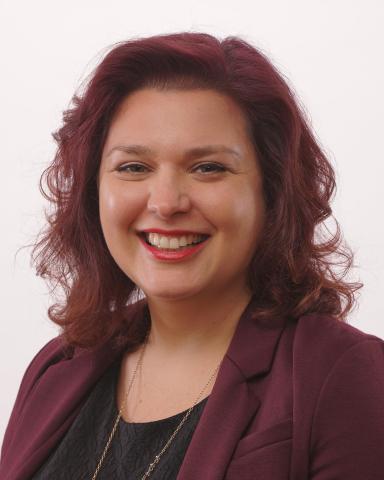
Budget
72,209 $32.7 M 16 27,786

Individual Learners Served Individual Learners PEWL’s Inception in 2006
280,000+

As the importance of diversity, equity, and inclusion (DEI) come into sharper focus in the workplace, the Managing for Innovation program (MFI) placed a stronger emphasis on incorporating DEI principles into the MFI coursework.
Program Director Clarke Griffith said he began speaking with the facilitators about curriculum changes at the suggestion of our partner, Associate Director of Programs and Partnerships Parker Krasney, from the Mayor’s Office for Economic Opportunity (NYC Opportunity).
“I was impressed with the different ways that the facilitators, depending on their topic, naturally and organically wove a diversity, equity, and inclusion lens into their materials where it wasn’t before,” Griffith said.
• Curriculum design
• Facilitation and learner engagement
• Identification and sourcing of talent
• Marketing
• Needs assessment and analysis
• Organizational development
• Professional skills development for workers
• Program evaluation
• Program management
• Training operations
MFI’s signature course, the Program Manager’s Forum, is delivered to selected program directors, assistant directors, and other emerging leaders at NYC nonprofits, who manage or work on City-funded human services programs. The curriculum is based on the Program Management Core Competency Model, created by PEWL, which outlines fundamental competencies for successful program management.
MFI’s other course is the City Partners’ Workshop, which is intended for City agency and Mayor’s Office staff who help to oversee the design, implementation, and monitoring of City-funded human services programming and systems change initiatives.
Griffith shared a few examples of how the facilitators incorporated DEI into the curriculum. During the module on project management, the facilitator included a discussion of the positive impacts of having a diverse project team. In other areas, the facilitator talked about the importance of using a participatory approach to management and including community members in every step of the process, from designing programs to developing a final report for new initiatives. In the contract management and budgeting module, the facilitator introduced historical background and guidance on contracting with the Minority and Women-Owned Business Enterprises Program.
“We also included a discussion about key performance indicators for measuring and improving an organization’s culture in terms of diversity, equity, and inclusion,” Griffith said. “Getting participants to ask critical questions such as ‘How are you measuring that?’ ‘What are your benchmarks?’ ‘How do you report on that?’”
Some examples of how to measure these indicators include looking at recruitment and selection, promotion, compensation, representation, retention, engagement, and customer/supplier diversity.
Jaye Smith, the lead MFI facilitator, was thrilled to help implement indicators into the coursework. “PEWL made intentional changes to the MFI curriculum, incorporating a DEI mindset and sets of behaviors,” Smith said. “DEI has always been important, but in light of horrific events, we felt it was necessary to make sure the MFI leaders had the tools and resources they needed to manage DEI within their own organizations.”

The moment Janelle Hammond took the Financial Independence Now (FIN) Learning and Coaching Program she knew it was something she could readily apply to help the residents at Carpenter House, a homeless shelter on Staten Island.
“It’s a very vulnerable population and a lot of the individuals that we serve have been homeless on the street for a long time,” said Hammond, program director at Carpenter House. “As a result, there wasn’t a need to save money, budget or open up a bank account.”
• E-learning module design
• Facilitation and learner engagement
• On-the-job training
• Program evaluation
• Program expansion
• Program management
• Training operations
The first step for Hammond and her staff was to help residents secure a source of income. Once they have that, they are then given the tools to start saving money.
“We record their deposits and withdrawals on a ledger,” explained Hammond. “They would get an actual receipt for that money. There would be specific times during the day when they could do their personal banking.”
Hammond is one of more than 700 Department of Social Services-Department of Homeless Services (DSS-DHS) shelter and agency staff who completed the FIN training and continue the mission of helping their clients with personal finances.
The FIN program is a partnership between PEWL, DSS-DHS, and Change Machine – a nonprofit organization that builds financial security for low-income communities. It provides training on how to assist clients with setting financial goals, developing spending and savings plans, managing credit and debt, and increasing their access to free off-site financial empowerment services via a referral process.
This collaboration was formed in January 2018 with the goal of equipping DSS-DHS professionals with the tools to lead conversations with clients about personal finances, including the assessment of credit scores and reports, as well as finding no-cost or low-cost banking services.
Since the program launched in September 2018, shelter and agency staff have been trained across approximately 120 shelters and low-barrier programs serving a range of clients, including single adults, young adults, adult families, and families with children. The program aims to ultimately reach all the agency’s shelters across the five boroughs.
In surveys administered at the end of training, staff report having richer and more frequent conversations with clients about their finances, and feeling better informed and more confident about having those conversations.
Overall, they found the training to be useful. They attest to the importance and value of improving financial literacy among their clients, and are committed to having these conversations.
“Financial Independence Now exemplifies the kind of innovation that strengthens our commitment to offering New Yorkers experiencing homelessness the high-quality services and supports they need and deserve,” said Department of Homeless Services Administrator Joslyn Carter. “We are grateful to Change Machine and CUNY SPS PEWL for their incredible partnership in in helping to build our comprehensive efforts and equip our clients with vital tools for financial sustenance as they get back on their feet.”
Hammond said she uses what she learned from the FIN Program with her clients, who are issued a certificate when they complete an in-house financial training program that the shelter offers to help them with budgeting, establishing credit, and saving money.
“Some folks really embraced these educational workshops and were able to save a considerable amount of money so that when they left Carpenter House, they were able to buy all the things that they wanted for their apartments,” Hammond said with pride.
In New York City and throughout the country, only a fraction of people experiencing mental or behavioral health conditions receive effective care. Treatment access, quality, and outcomes are often significantly worse for people of color, those with low incomes, LGBTQ+ people, immigrants, and other marginalized groups.
PEWL created the Academy for Community Behavioral Health to help close these gaps.
The Academy invests in the behavioral health knowledge, skills, and wellbeing of social service providers who already have meaningful relationships in communities. The Academy launched in Spring 2021 with support from the Mayor’s Office of Community Mental Health (OCMH) and the Mayor’s Office for Economic Opportunity (NYC Opportunity).
In its first full program year, the Academy developed free courses for NYC social service providers, custom services for City and State agencies, and a hub for new collaborations and knowledge building to strengthen the role that social service providers play in behavioral health. The
• Facilitation and learner engagement
• Identification and sourcing of talent
• Learning management systems
• Needs assessment
• Professional skills development
• Program evaluation
• Program expansion
• Program management
• Specialized learning program design
• Training operations
Academy offered more than 20 courses and reached over 2,000 learners from 250 organizations across the city in FY22, prioritizing the 33 neighborhoods identified by the New York City Taskforce on Racial Inclusion and Equity (TRIE) as most impacted by COVID-19 or experiencing high rates of health and other socioeconomic disparities. Academy courses have helped learners develop skills to support community members who are grieving; manage stress; help people process pain related to experiences of racism; explore new frameworks for post-traumatic growth; and more.
“The Academy has intentionally and thoughtfully created courses that really addressed not just the needs of communities, but also [recognized] that a lot of the staff doing the work are from those communities themselves,” said Debbie Panek, director of family and youth programs at Mercy Center in the Bronx. “The Academy recognizes that vicarious trauma and the stress of what all the families were going through also affect our staff and teams. If we don’t support staff, there was no way they could provide support to people in the community.”
Mercy Center was one of five organizations to participate in the first cohort of the Academy’s Motivational Interviewing Certificate Program for organizations or teams, launched in FY22. Motivational Interviewing (MI) is a collaborative, goal-oriented counseling method that helps people make and sustain positive behavior changes, leading to improved health and social outcomes.
“The Academy’s MI Certificate Program
is unique. It offers teams a seven-month learning path with comprehensive implementation support, training, and ongoing coaching. This is the support organizations need to successfully use an evidence-based practice like MI, with the skill and consistency that lead to positive outcomes. It reflects our commitment to closing the gap between evidence and practice, and getting proven behavioral health tools into the hands of providers who can use them,” said Academy Program Director Elise Tosatti.
In FY23, the Academy will expand its comprehensive certificate programs to include new courses on trauma-informed leadership, trauma-informed supervision, and advanced grief counseling skills. It will also expand single and multi-session courses in other focus areas.
The Academy is building cross-disciplinary collaborations that will help advance new programs, reach new audiences, deepen its impact, and offer new paths to career advancement or academic credit. This includes collaborating with the CUNY SPS Youth Studies Program to create a training program that will equip young people to act as peer mental health advocates in community organizations.
“The work of the Academy during this past year, as New York City emerges and recovers from the devastating effects of the COVID-19 pandemic, is nothing short of remarkable,” said PEWL Executive Director Amy Perez. “We are grateful to NYC Opportunity and the Mayor’s Office of Community Mental Health for this partnership and look forward to extending our reach among communitybased organizations.”
Mapping out “Learning Paths”—blueprints for individual learners to guide their career development—is emblematic of the ways that Program Director Anita Staeheli and her team at the CUNY/Office of Child Support Services (OCSS) Training Program used technology to further the agency’s goals.
Implementing a new learning management system on the project was the first step, but they also needed a better way to track enrollment and progress in the courses that would help OCSS staff develop the necessary knowledge and skills to excel at their jobs.
Program Manager Allyson Gasdaska explained that OCSS had been using their own in-house course-tracking system, but it was hard to use and underutilized.
Gasdaska said the opportunity to develop a system to track courses taken by staff came when the new Absorb Learning Management System (LMS) was deployed by PEWL. Developing Learning Paths— a customized schema outlining the series of classes and courses each staff member would take over the course of their career—was a critical goal for Frances Pardus-Abbadessa, executive deputy commissioner at the Department of Human Resources.
Creating and implementing Learning Paths was a multi-year process. The first steps were to interview department managers within OCSS to see what courses were integral for their staff. “OCSS and PEWL came together to try to figure out what is a standardized training curriculum that every type of worker in this agency should take,” Gasdaska said.
While each Learning Path included a core set of courses for all OCSS staff, there would be additional individually tailored entries for different departments, employee titles, and workstreams. For example, Gasdaska said, staff in an OCSS department doing administrative work, such as the finance department, would have a
different Learning Path than OCSS caseworkers doing intake work with custodial parents.
The result was the creation of a multitude of Learning Paths covering the entire OCSS organization, which was finalized in 2019. The next step, from 2020 through 2022, was configuring the Paths into the Absorb LMS.
“The LMS now makes it really easy for supervisors to access information about their staff’s training history,” Gasdaska continued. “If I’m a supervisor and need to see which staff have or haven’t taken a particular course in their Learning Path, I can quickly access their course history within Absorb to check. Or, if I have a staff member struggling with something, I can see if they’ve taken any courses about that topic and help them access additional training ASAP.” To enable all of this, Gasdaska added, it was important to have the existing historical course information for OCSS staff, which was also integrated into the LMS.
In Spring 2022, PEWL staff began offering trainings to supervisors and directors to learn how to access Learning Path reports and training transcripts within the LMS. “We offered an asynchronous e-learning course and also webinar office hours for supervisors, teaching them how to access and use all of their direct reports’ training data on demand in the LMS,” Gasdaska added.
• Change management
• Facilitation and learner engagement
• E-learning module design
• Identification and sourcing of talent
• Learner recruitment and registration
• Learning management systems
• Needs assessment
• Organizational development
• Process re-engineering
• Program evaluation
• Program management
• Specialized learning program design
• Training operations
Staeheli noted this was a great example of how CUNY and OCSS partnered together to bring a vision to life.
“It was a very detailed and time-consuming project,” she said. “It’s something that will enhance both PEWL’s ability to offer the right training and also the stakeholder’s ability to really get an overview of training and how to strategize for future training needs.”
Staeheli added that her team had two other important accomplishments this past fiscal year. The first was converting and facilitating the OCSS employer
conference from an in-person event to a virtual one, with multiple presentations from state and local experts.
This was partly prompted by the pandemic, explained Program Manager Angela Barraco-Levine, who designed the programming for the conference. But they were also able to reach more employers by converting it to an online format.
The conference is imperative to the work of OCSS because it helps employers with the process of withholding income from noncustodial parents, which accounts for about $550 million a year collected by OCSS on behalf of the City’s children.
“The new conference format was so successful that the agency will continue this format moving forward,” Staeheli said.
Lastly, the Training Institute, which provides short webinars to City agencies and community-based organizations (CBOs) about the
complexities of the City’s child support system, expanded its reach and broadened its audience to include OCSS clients—custodial and noncustodial parents, explained Program Manager Chuck DeLaney.
DeLaney said the Institute develops and delivers shorter presentations that are geared to specific audiences such as new moms or noncustodial parents with debt issues. “We’ve also recorded presentations so they can be available on the OCSS website and YouTube channel on demand, and another innovation is creating presentations for Spanish-speaking clients.”
In addition, he said the Training Institute now issues a quarterly calendar and regularly develops new presentations devoted to topics of interest to both CBO staff and individual parents. In the coming months, “Ask the Leadership of OCSS” sessions will be held and feature OCSS executive staff holding Q&A sessions with custodial and noncustodial parents.
It is the level of detail in the rooms that is particularly striking.
The fake vomit and flies near the baby indicating neglect. The food growing mold that reeks in the refrigerator. The “poopy” diapers purposely stained brown.
Known as “Sim Alley,” the long hallway has various rooms and painted facades of a cafe, a Broadway show, and the subway. These simulation labs feature one-way glass observation rooms and hidden microphones where as many as 20 trainees can gather at a time to observe the training simulations in real time at the New York State Office of Children and Family Services (OCFS) Human Services Training Center in Rensselaer.
• E-learning module design
• Facilitation and learner engagement
licensed childcare professionals, among others. Our PEWL teams maintain and support the training technology used at the Center, as well as develop many e-learning courses that are delivered to the agency’s thousands of employees and voluntary provider agency staff statewide.
• Learning management systems
• Professional skills development for workers
• Program management
• Specialized learning program design
• Training operations
PEWL launched its partnership with the OCFS Bureau of Training and Development (BTD) in 2010 and employs nearly 20 staff members at the 100,000 square foot center, as well as another nine team members at the OCFS regional office in Buffalo. At the Center in Rensselaer, in-person mandated training is provided to workers around the state, including child welfare caseworkers and supervisors, juvenile justice workers, and
The training center was two years in the making and is one of only two such centers nationwide.
The new facilities, in addition to offering state-of-the-art training rooms, also has the benefit of bringing PEWL team members closer, enabling them to collaborate and more easily expand upon their work.
“When we launched our partnership with the OCFS Bureau of Training and Development in 2010, our PEWL staff were physically more spread out and located within different wings of the agency’s home office,” explained PEWL Senior Program Director Rebecca Brown Cesarani.
“There were only a couple of training rooms and labs there, so the Bureau of Training and Development’s move to the completely renovated Human Services Training Center in late 2018 was a
TECHNOLOGY continued
major transition for both the teams, who are now closer together, as well as for certain aspects of their work,” she added.
While PEWL’s work for OCFS has always focused on designing and delivering asynchronous and synchronous web-based learning solutions for staff statewide, the work has since expanded to also include much more technology support for the Training Center’s many more classrooms, labs, and simulation rooms, as well as
building additional proprietary data systems to track training assets and classes taking place there, explained Brown Cesarani.
“This opportunity for caseworkers and detention center staff to practice these hard and soft skills in a controlled, safe, and supported environment is crucial in strengthening their ability to act in the moment when they encounter life-threatening and emotionally challenging situations on the job,” said Edwina Nuñez, PEWL former program director.
Eddie Santiago is familiar with how hard it can be to find a job after spending 15 years in prison.
“I paid my dues to society and then you go and try to get a job, and employers raise eyebrows when they learn about your past—and then it’s rejection, rejection, rejection,” Santiago said. “How do you get people to see that there’s more to you than that?”
Santiago, a community technician at Bowery Residence Committee, received the opportunity to change the narrative by becoming an advisor to the e-learning course Unlocking Employment: How to Partner with Job Seekers Impacted by the Legal System.
“It’s focused on a strengths-based perspective and reframes how to work with job seekers, who are in need of a fair chance.”
Santiago suggested the course should include language that avoids using the words “criminal,” “jail,” or “prison” because that immediately biases potential employers. His advice was incorporated into the design of the course.
• Learning management systems
• Needs assessment
• Professional skills development for workers
• Project management
The course was created to enhance the skills and increase the effectiveness of workforce development practitioners serving job seekers who have been involved with the legal system. It is a collaborative project between PEWL, the Mayor’s Office for Economic Opportunity (NYC Opportunity), and John Jay College Institute for Justice and Opportunity (The Institute).
• Vendor management
“Input such as Santiago’s was paramount in ensuring that the course and materials were developed with a person-centered approach,” said Edwina Nuñez, former PEWL program director, who oversaw the development of Unlocking Employment.
“We created Unlocking Employment as an aid for workforce development professionals, so they can better support job seekers with legal system involvement,” said NYC Opportunity Acting Executive Director Carson Hicks. “This e-learning course is filled with key insights on the impact of legal system involvement, legal protections available to those with criminal convictions, and tools and best practices to support a job search. We are excited to partner with PEWL and The Institute to create this crucial resource.”
PEWL staff project-managed the development and launch of the courses, served as the liaison across stakeholders, and customized and implemented the program’s learning management system.
“This course is essential for workforce development practitioners to become more informed about the rights and needs of people who have had previous involvement with the legal system,” said PEWL Senior Program Director Dawn Picken.
Corinthia Tart, an employment coordinator for Bronx Works, was one of the practitioners who participated in a pilot review of Unlocking Employment. “I would 100 percent recommend this,” she said. “This course would be a blessing for anyone working in the area of workforce development who needs to know more about the rights and needs of those previously involved in the legal system.”
What do you get when you hire CUNY SPS PEWL?
Experts in:
Change management
Curriculum design
E-learning module design
Facilitation and learner engagement
Identification and sourcing of talent
Learning management systems
Learner recruitment and registration
Marketing
Needs assessment and analysis
On-the-job training
Organizational development
Process re-engineering
Professional skills development for workers
Professional training program evaluation
Program expansion
Program management
Simulation training
Specialized learning program design
Training operations
Vendor management
“Our partnership with PEWL allows us to benefit from experts and consultants who help us develop interactive learning programs to advance the work of child welfare and juvenile justice workforce and to better serve the City’s most vulnerable children and families. I love the diversity of the staff and their commitment to racial equity and social justice.”
— Cheryl L. Beamon, Associate Commissioner with the City’s Office of Training and Workforce Development, about the ACS Workforce Institute partnership
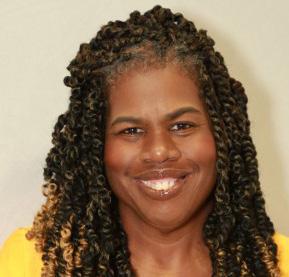
“I like the professionalism and expertise that is being provided to support our program area. While not the subject matter experts themselves for the projects they are working on, getting so embedded with the work and those that are the experts to the point that it is hard to distinguish between CUNY SPS PEWL staff and DSS staff. The efficient and effective communication has helped lead to a well-functioning partnership.”
— Adam Waitzman, Assistant Deputy Commissioner, Policy and Procedures, about the DSS DHS Staff Learning and Development Program
“I enjoy PEWL’s organization and attention to detail. The DSS DHS Staff Learning and Development program team is very knowledgeable, creative, and easy to work with—this is a winning combination, as it not only makes for incredibly useful trainings, but also a collaborative work relationship.”
— Elizabeth A. Iannone, Esq., MPA, NIC, MHC, DSS Office of Legal Affairs, Legal Implementation Strategist
“PEWL has been instrumental in advancing the work of the Mayor’s Office for Economic Opportunity. Through our yearslong partnership, PEWL has consistently delivered as an instructional designer, project manager, and training administrator, helping to build organizational capacity across our office, City partners, and the human service provider workforce.”
— Carson C. Hicks, PhD, Acting Executive Director, Mayor’s Office for Economic Opportunity
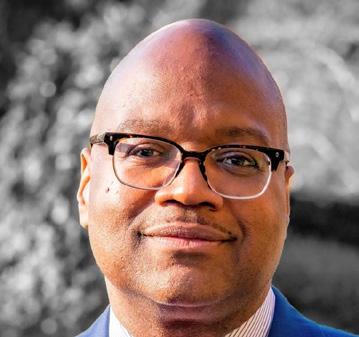
“We are grateful to PEWL for their incredible partnership on the FIN initiative which has provided valuable training for DSS-DHS and our provider-partner staff to better assist clients looking to develop financial literacy skills as they stabilize their lives. This is the kind of innovation that helps build on our ongoing efforts to offer vulnerable New Yorkers the high-quality supports they need and deserve.”
— Shereen Margolis, Former Partner Liaison Manager, Office of Public/Private Partnerships and Erin Foster, Project Manager, Adult Services Division DHS
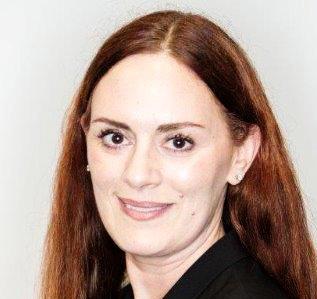
“As part of our commitment to ensuring that we provide vulnerable New Yorkers with holistic services and supports, we are proud of our continued partnership with CUNY SPS PEWL which provides meaningful training supports to our staff through a variety of strategic initiatives. From strengthening our traumainformed delivery of services to helping staff equip our clients with financial literacy tools, we are grateful for the many ways in which PEWL helps us build on our comprehensive efforts to serve and support vulnerable New Yorkers as they stabilize their lives. ”
— Gary P. Jenkins, Commissioner, NYC Department of Social Services
Dorothea Nixon-Porter Program Director
Partner: NYC Department of Social Services (DSS)

Inception: 2019
The Anti-Bias Trauma-Informed Training (ABTI) program provides training for the DSS, Human Resources Administration (HRA) and the Department of Homeless Services (DHS). The trainings focus on the intersections of individual and structural biases, racism, trauma, and their influence on behavior and decision-making in the workplace. The ABTI team helps staff to understand automatic patterns of thinking and mitigate bias. The training is conducted using in-person, asynchronous e-learn programming and virtual instructor-led training courses consisting of lecture, small group exercises, case studies, and large group discussions. Core services:
• E-learning module design
• Facilitation and learner engagement
• Identification and sourcing of talent
• Organizational development
• Program evaluation
• Specialized learning program design
• Training operations
3 2
Charlene Armstrong Program Director
Partner: NYC Administration for Children’s Services (ACS)


Inception: 2015
The Workforce Institute, a partnership between the Administration for Children’s Services, PEWL, and the Hunter College Silberman School of Social Work provides ongoing professional skills development for direct service staff and supervisors at ACS and its many partner agencies. Programs include strengths-based practice, coaching, safety and risk assessment, implicit bias, evidencebased modeling, and other specialized coursework to numerous staff members across the child welfare and juvenile justice sectors. Core services:
• Change management
• E-learning module design
• Facilitation and learner engagement
• Identification and sourcing of talent
• Learning management systems
• Learner recruitment and registration
• Marketing
• Needs assessment
• Organizational development
• Professional skills development
• Program expansion
• Project management
• Specialized learning program design
• Training operations
• Vendor management

Michael Schultz
Senior Program Manager
Partners: NYC Department of Citywide Administrative Services (DCAS) and NYC Emergency
Inception: 2010
The Coastal Storm Plan (CSP) training program is targeted primarily towards City agency staff who are assigned a role in the CSP evacuation and sheltering system and require training to perform necessary tasks. The program is also available to state, federal, NGO, and private partner organizations that provide support for these operations. Core services:
• Learning management systems
• Professional training
• Program management
Partner:
NYC Department of Correction
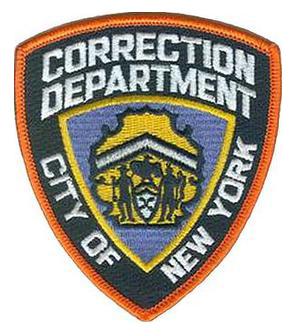
Inception: 2017
PEWL’s partnership with the Department of Correction supports the agency’s mission through the development of learning programs for uniform and nonuniform staff. Our work with the agency includes instructor-led training (ILT) leadership courses, e-learning modules, on-the-job training (OJT) scenarios, and other programs and workshops. Core services:
• Needs assessment
• On-the-job training
• Program evaluation
• Vendor management

Michelle
Attles Program DirectorTanja
Carter-Searls Senior Program DirectorPartner: NYC Department of Social Services (DSS) Office of Policy, Procedures and Training (OPPT)
Inception: 2019
The DSS DHS Staff Learning and Development Program team writes comprehensive procedures and designs and deploys training to DHS and DHS provider staff on operational processes and City-mandated topics, focusing on how to operate and maintain DHS-funded facilities and programs. Core services:
• Assessment
• Curriculum design
• Facilitation and learner engagement
• Identification and sourcing of talent
• E-learning modules and simulations
• Learning management systems
• Marketing
• Organizational development
• Process re-engineering
• Project management
• Specialized learning program design
Partner: NYC Department of Citywide Administrative Services (DCAS) Division of Energy Management (DEM)
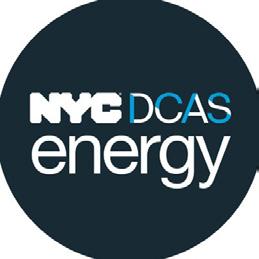
Inception: 2009
The Energy Management Institute (EMI) trains New York City staff in energy management best practices and helps them develop the skills they need to optimize building performance. EMI offers a broad range of trainings, certifications, and other technical support to City staff from diverse disciplines, including energy managers, energy auditors, building operators, engineers, and tradespeople. The courses and workshops focus on improving the skills of DCAS-DEMsupported agency employees responsible for implementing energy-efficient measures that support the City’s major greenhouse gas emission reduction goals. EMI helps empower City staff to make energy-smart decisions, implement operational improvements, and advocate for energy retrofits and clean energy projects across the City’s portfolio. Core services:
• E-learning module design
• Facilitation and learner engagement
• Identification and sourcing of talent
• Learning management systems
• Organizational development
• Professional skills development
• Professional training
• Program evaluation
• Program management
• Specialized learning program design
7 8
Jennifer DePalma
Program Director
Partner: NYC Department of Youth and Community Development (DYCD)

Inception: 2011
PEWL coordinates the professional development FDC training in partnership with the DYCD. FDC is an interactive, professional development training for front-line workers and supervisors from public, private, and nonprofit health and human services systems, with an emphasis on empowerment and family support to reorient the way services are delivered. The credential, issued by the Center for Culture, Health & Human Development at the University of Connecticut, is earned after completion of interactive classroom study facilitated by a certified instructor, completion of an examination, and the development of a portfolio. Core services:
• Facilitation and learner engagement
• Program management
• Professional skills development
Anita Staeheli
Program Director
Partner: NYC Human Resources
Administration Office of Child Support Services (OCSS)

Program Ended June 30, 2022
The FFD is a national multi-site program designed to increase the earnings of low-income noncustodial parents to help them pay their court-ordered child support. Partnering with specialized workforce development vendors, FFD offers participants free vocational training, employment services, child support navigation assistance, financial counseling, and wraparound supports. Core services:
• Project management
• Vendor management
• Professional training
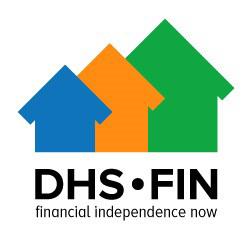
Jennifer DePalma
Program Director
Partner: NYC Department of Homeless Services (DHS)
Inception: 2018
DHS FIN provides financial coaching strategies and tools to shelter-based staff, including case managers, independent living specialists, housing specialists, and leadership, to help shelter clients set financial goals, develop monthly spending and savings plans, check credit scores and reports, and ultimately transition to permanent housing. The program also aims to increase clients’ access to NYC Financial Empowerment Centers, which provide more in-depth financial counseling services, via a referral process. Core services:
• E-learning module design
• Facilitation and learner engagement
• On-the-job training
• Program evaluation
• Program expansion
• Program management
• Training operations
Michelle Attles
Program Director
Partners: Con Edison and CUNY
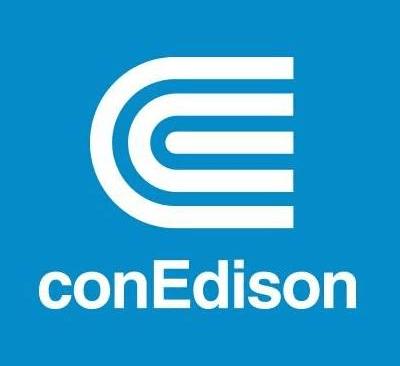
Building Performance Lab
Inception: 2018
This program offers a free gas safety training class for building superintendents, operators, and maintenance staff of all New York City residential buildings. The training consists of three e-learning modules and a 2.5-hour instructor-led class offered entirely online. Core services:
• E-learning modules
• Needs assessment
• On-the-job training
• Program management
Clarke
GriffithProgram Director
Partner: The Mayor’s Office for Economic Opportunity (NYC Opportunity)
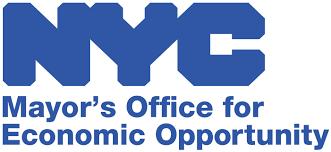
Inception: 2011
Managing for Innovation is a leadership program consisting of the Program Managers’ Forum, the City Partners’ Workshop, and an alumni network. The Program Managers’ Forum, the signature course, is designed for program directors, assistant directors, and other emerging leaders at NYC nonprofits who manage or work on City-funded human services programs. The City Partners’ Workshop is for City agency and Mayor’s Office staff who help to oversee the design, implementation, and monitoring of Cityfunded human services programming and systems change initiatives. Core services:
• Curriculum design
• Facilitation and learner engagement
• Identification and sourcing of talent
• Marketing
• Needs assessment and analysis
• Organizational development
• Professional skills development
• Program evaluation
• Program management
• Training operations
Anita Staeheli
Program Director
Partner: NYC Human Resources

Administration Office of Child Support Services (OCSS)
Inception: 2008
In support of employee learning and performance support goals, this workforce development program develops new training courses and procedures. The program maintains and delivers an ongoing training calendar, including a rotation of existing courses. PEWL supports OCSS in their mission to lift New York City children out of poverty each year. Core services:
• Change management
• E-learning module design
• Facilitation and learner engagement
• Identification and sourcing of talent
• Learner recruitment and registration
• Learning management systems
• Needs assessment
• Organizational development
• Process re-engineering
• Program evaluation
• Program management
• Specialized learning program design
• Training operations

Elise
TosattiProgram Director
Partners: The Mayor’s Office for Economic Opportunity (NYC Opportunity) and The Mayor’s Office of Community Mental Health (OCMH)


Inception: 2021
The Academy provides training, coaching, and technical support that equip social service providers to proactively address behavioral health. Academy services include free courses for community-based organizations, City or State agencies, and a hub for new collaborations and knowledge building and other nonprofit social service providers. Capacity building is prioritized in the 33 neighborhoods identified by the New York City Taskfore on Racial Inclusion and Equity (TRIE)
Core services:
• Curriculum design
• Marketing
• Facilitation and learner engagement
• Identification and sourcing of talent
• Learning management systems
• Needs assessment
• Professional skills development
• Program evaluation
• Program expansion
• Program management
• Specialized learning program design
• Training operations
Rebecca
Senior
Brown Cesarani Program DirectorPartner: New York State Office of Children and Family Services (OCFS)

Inception: 2010
PEWL provides OCFS state, local district, and provider agency staff statewide with mandated training on topics designed to promote health and safety among children and adults. The primary training audience includes child welfare and adult protective services caseworkers and supervisors, as well as foster/adoptive parents. Core services:
• E-learning module design
• Facilitation and learner engagement
• Learning management systems
• Professional skills development
Partner: The Mayor’s Office for Economic Opportunity (NYC Opportunity)

Inception: 2018
Unlocking Employment is a 90-minute, self-paced, e-learning course that provides City-funded, workforce development provider staff with best practices and resources for working with job seekers who have criminal legal system involvement. Emphasizing a strengths-based approach, the course content was developed in partnership with the John Jay College Institute for Justice and Opportunity, workforce development provider staff, and job seekers with experience in the legal system. Core services:
• Learning management systems
• Needs assessment
• Professional skills development
• Project management
• Vendor management

Clarke
GriffithProgram Director
Partner: Central Park Conservancy Institute for Urban Parks

Inception: 2017
The Urban Park Leadership Program is a non-credit credential that brings together executive and senior-level, urban park professionals from across the country and internationally for a nine-month professional development experience of synchronous and asynchronous learning, network building, and creative problemsolving relevant to urban park leadership and management.
The Essentials of Urban Park Management Certificate offers a fully online, self-paced, 14-week, non-credit credential for entry- to mid-level staff in public park agencies and nonprofit urban parks groups nationally and internationally focusing on practices critical to the care and management of urban parks. Core services:
• Facilitation and learner engagement
• Learner recruitment and registration
• Learning management systems
• Marketing
• Professional skills development
• Program evaluation
• Program management
• Specialized learning program design
Anti-Bias Trauma-Informed Training
• Work with the Department of Social Services to develop additional equity-based content to achieve their goal of dignity-centered services for all
The Academy for Community Behavioral Health
• Co-design a new certificate program in trauma-informed organizational practice, with input from direct care staff, supervisors, and senior leaders in NYC social service organizations
• Collaborate with the CUNY SPS Youth Studies Program to develop a training program that will equip young people to act as peer mental health advocates in community organizations
Central Park Conservancy Institute for Urban Parks
• Partner in planning and supporting the return of a week-long in-person session in April 2023 in New York City
Department of Homeless Services Staff Learning and Development Program
• Develop Medically Appropriate Procedure Training (e-learning), which will provide an overview of the Medical Appropriateness Procedure documenting the steps needed during intake when individuals present medical needs
Energy Management Institute
• Implement a new Learning Management System: Blackboard Learn
• Pilot Post-Training Evaluation Methodology
Financial Independence Now Program
• Optimize the online learning experience by combining shelter leadership and frontline staff into single shorter live “kick-off” sessions
• Convert more of the program’s live content to self-paced e-learning modules
• Introduce “office hours” support sessions
Essentials of Urban Park Management Certificate Program
• Add live webinars to the program, which is currently a fully online, asynchronous program
Managing for Innovation
• Redesign and refresh the return to in-person learning in Spring 2023
OCSS CUNY Training Program
• Roll out the Electronic Case File system, including the areas of data management and interpretation for one of the units
